Featured articles
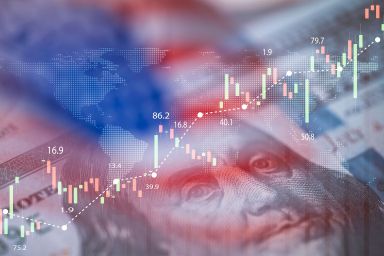
Why Michael Burry just sold all his tech stocks
Michael Burry has just exited a nearly $100 million position on Nvidia that he opened earlier this year.
14:42, 9 October 2025

Gold forecast: Third-party price targets
Gold (XAU/USD) is currently trading at $3,982.94 (as of 6:12pm UTC, 7 October 2025), after briefly crossing $4,000 per ounce for the first time during the session.
14:43, 9 October 2025

How does Elon Musk impact cryptocurrency prices?
In cryptocurrency markets, few individuals command as much attention as Elon Musk. The CEO of Tesla and SpaceX’s tweets, Tesla and Dogecoin announcements, and public statements can trigger periods of heightened volatility, with shifts in buying and selling pressure across digital assets.
13:29, 30 September 2025

Alphabet stock forecast: Third-party projections
Alphabet (GOOG) traded at $265.37 at 12:34 pm UTC on 27 October 2025, near the top of its intraday range between $255.00 and $265.76.
6 hours ago

Cloudflare stock forecast: Third-party price targets
Cloudflare (NET) was last quoted at $223.69 at 4:52 pm UTC on 27 October 2025, trading near the upper end of its intraday range of $217.11–$224.12.
24 hours ago

Apple stock forecast: Third-party price targets
Apple (AAPL) traded at $265.91 as of 2:48 p.m. UTC on 27 October 2025, within an intraday range of $259.23–$266.19.
14:40, 29 October 2025

Meta stock forecast: Third-party price targets
Meta Platforms (NASDAQ: META) last traded at $748.76 as of 10:03 a.m. UTC on 27 October 2025, moving within an intraday range of $732.09–$750.10.
13:56, 29 October 2025
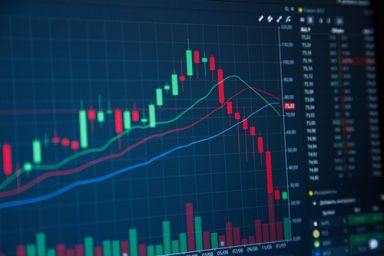
Market Analysis: Gold, Nasdaq 100, GBPUSD
A look into how gold, the Nasdaq 100 and GBPUSD are trading during a busy week of ok key earnings reports and central bank meetings.
09:44, 29 October 2025

Market Mondays: Trade developments, FOMC meeting and Earnings
Markets brace themselves for a busy week ahead with key focus on trade talks, the FOMC meeting and key earnings including MAG7 companies
13:23, 27 October 2025
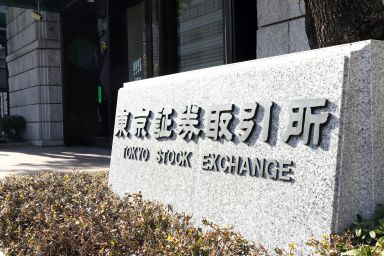
Trading the Nikkei 225 After its 50K Breach
The technicals remain bullish on both daily and weekly time frames, while in sentiment it’s a story of majority buy bias.
09:28, 27 October 2025

Trading the Dow 30 Ahead of More Earnings
Last week was mostly a story of recovery shaking off a couple key negative factors, but it’s about to get more interesting with more earnings this week.
06:14, 20 October 2025

Market Analysis: Gold, Nasdaq 100, GBPUSD
A look into how gold, the Nasdaq 100 and GBPUSD are trading during a busy week of ok key earnings reports and central bank meetings.
09:44, 29 October 2025
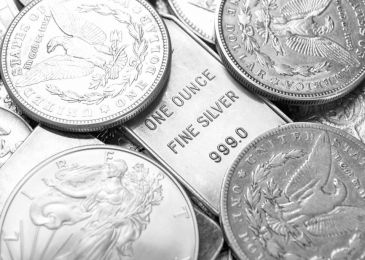
Silver price forecast: Third-party predictions 2025-2030
Silver spot is trading at $52.44 per ounce as of 16:41 UTC on 20 October 2025, within its intraday range of $51.12–$54.43.
07:26, 29 October 2025

Market Mondays: Trade developments, FOMC meeting and Earnings
Markets brace themselves for a busy week ahead with key focus on trade talks, the FOMC meeting and key earnings including MAG7 companies
13:23, 27 October 2025

US crude outlook: sanctions vs. surplus
Oil prices jump higher this week as the US threatens direct sanctions on Russian producers but the supply outlook remains overcrowded
09:36, 24 October 2025

ECB Preview: no action expected as economy settles
The European Central Bank is expected to leave rates unchanged at their meeting this week as the balance of risks remains in favour of moderate growth and inflation
10:59, 29 October 2025

Market Analysis: Gold, Nasdaq 100, GBPUSD
A look into how gold, the Nasdaq 100 and GBPUSD are trading during a busy week of ok key earnings reports and central bank meetings.
09:44, 29 October 2025

Market Mondays: Trade developments, FOMC meeting and Earnings
Markets brace themselves for a busy week ahead with key focus on trade talks, the FOMC meeting and key earnings including MAG7 companies
13:23, 27 October 2025

Trading gold's volatile technical overview
The technical overview shifted to volatile before last Tuesday’s plunge putting breakout strategies in play, while in sentiment fresh longs remain exposed.
07:46, 23 October 2025
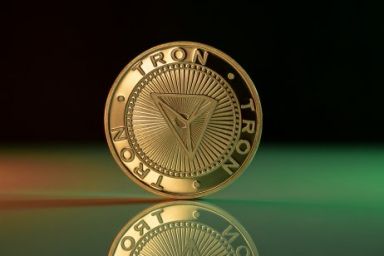
Tron price prediction: What is tron (TRX)?
TRON (TRX/USD) is trading at $0.3212 as of 9:04am UTC on 22 October 2025, after moving within an intraday range of $0.3178–$0.3251. The token remains close to its session high, near the upper end of its recent consolidation band.
08:01, 28 October 2025

Ripple price prediction: Third-party outlook
Ripple (XRP) was trading at $2.41 as of 11:02am UTC on 21 October 2025, after moving within a daily range of $2.37–$2.53.
13:26, 24 October 2025
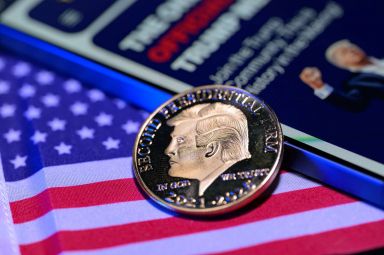
Trump coin price prediction 2025-2050: Third-party TRUMP insights
Trump Coin (TRUMP) is trading at $5.815 as of 9:37am UTC on 21 October 2025, testing the lower end of its intraday range of $5.8150–$6.0354. The Solana-based memecoin has declined from early October levels, with prices consolidating below the $6.00 threshold after a volatile third quarter.
12:39, 24 October 2025

Pi Network coin price prediction 2025-2050: Third-party price target
Pi Network (PI) is trading at $0.2018 at 8:56am UTC on 21 October 2025, after moving within an intraday range of $0.2019 to $0.2086.
11:45, 24 October 2025
